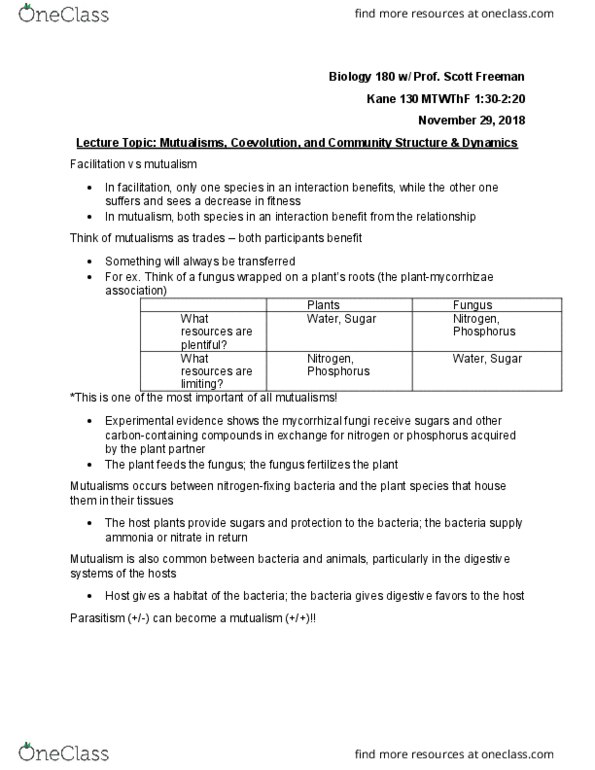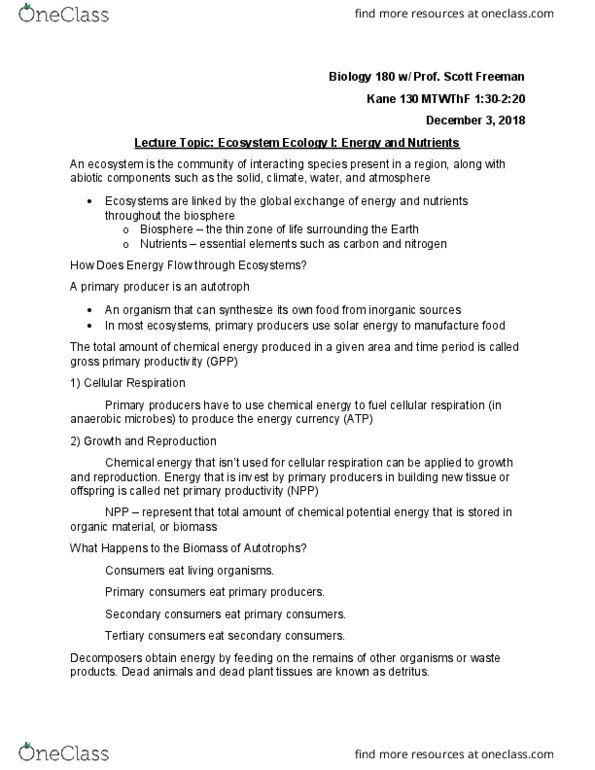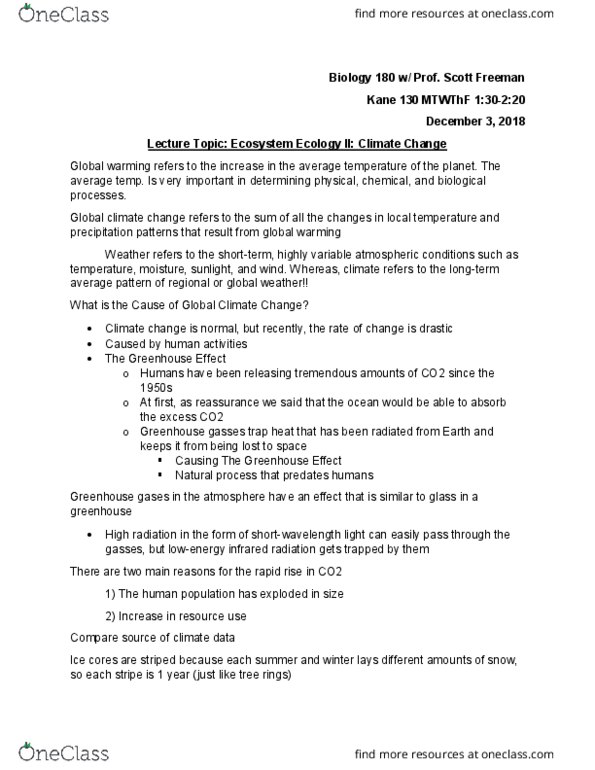BIOL 180 Lecture Notes - Lecture 49: Primary Production, Cellular Respiration, Herbivore
BIOL 180 verified notes
49/51View all
Document Summary
Lecture topic: ecosystem ecology i: energy and nutrients. A primary producer is an autotroph: an organism that can synthesize its own food from inorganic sources. In most ecosystems, primary producers use solar energy to manufacture food. The total amount of chemical energy produced in a given area and time period is called gross primary productivity (gpp: cellular respiration. Primary producers have to use chemical energy to fuel cellular respiration (in anaerobic microbes) to produce the energy currency (atp: growth and reproduction. Chemical energy that isn"t used for cellular respiration can be applied to growth and reproduction. Energy that is invest by primary producers in building new tissue or offspring is called net primary productivity (npp) Npp represent that total amount of chemical potential energy that is stored in organic material, or biomass. Decomposers obtain energy by feeding on the remains of other organisms or waste products. Dead animals and dead plant tissues are known as detritus.




